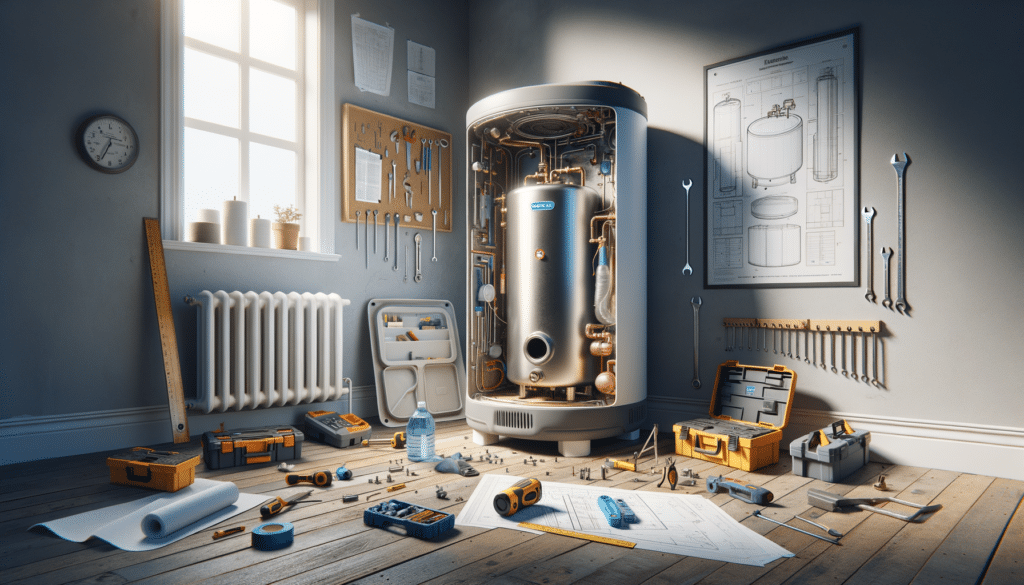Understanding Hot Water Tank Repair
Hot water tanks are essential components in many homes, providing the necessary warmth for showers, cleaning, and other daily activities. However, like any appliance, they can encounter issues over time. Common problems include leaks, inconsistent heating, and pressure concerns. Addressing these issues promptly can prevent more significant damage and extend the life of the unit.
Leaks are often the first sign that a hot water tank needs attention. These can result from corrosion, loose connections, or faulty valves. Inconsistent heating might indicate a problem with the thermostat or heating element. Pressure issues, on the other hand, might be due to a malfunctioning pressure relief valve or sediment build-up within the tank. Each of these problems requires a specific approach for effective resolution.
Understanding these common issues can help homeowners decide when to call in a professional. Regular maintenance, such as flushing the tank to remove sediment, can also prevent many of these problems from occurring in the first place.
Essential Hot Water Tank Maintenance Tips
Maintaining a hot water tank is crucial for ensuring its longevity and efficiency. Regular maintenance tasks can prevent unexpected breakdowns and costly repairs. One of the most effective maintenance practices is flushing the tank annually. This helps to remove sediment that can build up over time, reducing efficiency and potentially causing damage.
Another essential maintenance task is inspecting the anode rod. This component helps prevent corrosion inside the tank. If the rod is heavily corroded, it should be replaced to protect the tank’s interior. Checking the pressure relief valve is also important; it ensures that excess pressure can escape, preventing potential tank damage.
Homeowners should also regularly inspect for any visible signs of wear or leaks around the tank. Addressing minor issues early can prevent them from escalating into more significant problems. By following these maintenance tips, homeowners can ensure their hot water tanks operate efficiently and reliably.
The Role of a Hot Water Tank Technician
A hot water tank technician plays a vital role in ensuring the proper functioning of these essential home appliances. These professionals are trained to diagnose and repair a variety of issues, from minor leaks to major mechanical failures. Their expertise ensures that repairs are carried out safely and effectively, minimizing the risk of further damage.
Technicians are also knowledgeable about different types of hot water tanks, including traditional storage tanks and more modern tankless systems. This expertise allows them to provide tailored solutions based on the specific needs of each unit. Additionally, they can offer valuable advice on maintenance practices to help extend the life of the tank.
When selecting a technician, it’s important to choose someone with the right qualifications and experience. Reading reviews and asking for recommendations can help ensure you find a reliable professional. With the right technician, homeowners can have peace of mind knowing their hot water tank is in capable hands.
Hot Water Tank Installation Considerations
Installing a hot water tank is a significant investment, and several factors should be considered to ensure the right choice is made. The first consideration is the type of tank. Traditional storage tanks are common, but tankless models are becoming increasingly popular due to their energy efficiency and space-saving design.
The size of the tank is another crucial factor. It should be large enough to meet the household’s hot water needs but not so large that it results in unnecessary energy consumption. The location of the installation is also important; the tank should be placed in an area where it can be easily accessed for maintenance and repairs.
Professional installation is recommended to ensure the tank is set up correctly and safely. A qualified technician can ensure all connections are secure and the unit operates efficiently. By considering these factors, homeowners can choose a hot water tank that meets their needs and provides reliable service for years to come.
Conclusion: Ensuring Efficient Hot Water Tank Operation
Hot water tanks are a crucial part of modern living, providing the comfort and convenience of readily available hot water. Regular maintenance and timely repairs are essential to keep these systems running smoothly. By understanding common issues, performing regular maintenance tasks, and relying on skilled technicians, homeowners can ensure their hot water tanks operate efficiently and effectively.
Whether it’s through regular inspections, choosing the right technician, or selecting the appropriate tank for installation, each step plays a role in extending the life of the unit. With proper care and attention, hot water tanks can provide reliable service, enhancing the comfort and functionality of any home.


